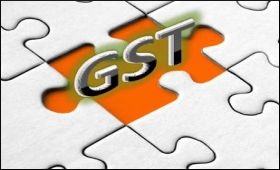Bucking trends overseas, where governments lost elections after launching the Goods and Services Tax (GST), India appears to have voted overwhelmingly for the ruling party, suggesting that the new indirect tax regime has been widely accepted as a major economic reform.
The latest trends show BJP and its alliance partners leading in 343 seats out of 542 Lok Sabha seats in contention this time.
Federal governments had lost the elections in Malaysia, New Zealand and Australia following the launch of the GST there. The popular anger in these countries was primarily due to the resulting high prices of goods and services after the tax reform.
"This is possibly the first time that a large country has re-elected a government which introduced GST," said a leading tax law expert here who did not wish to be named because the issue involves politics.
Listing out the reasons for the thumping majority projected for the government which brought in the structural tax reform, the expert said that Prime Minister Narendra Modi's government had managed to keep inflationary pressure in check and had responded proactively to the demands of industry.
"In many countries where GST was launched, the governments promised that whatever difficulties faced on this count would be resolved within a year, while the time difference between elections and GST roll-out was less than a year.
"Here (India), the time difference between the GST roll-out and election has been about two years," another top GST consultant said, wishing not to be named.
The Modi government launched GST on July 1, 2017. The biggest indirect tax overhaul has resulted in the lower cost of most goods and services, while making Indian economy globally competitive.
The government has effected dozens of changes in the new tax regime and cut taxes across hundreds of items over the last two years to make it industry-friendly. More changes are on the cards to further simplify the processes.
Now that the NDA is all set to return to power, there are expectations that necessary changes in the GST law, as well as rules, would be expedited.
"Given the loud mandate of the government, we expect the compliance burden would be eased further and the sectors which were left out earlier would be included in the new regime.
"Further, the government would create a conducive environment for the service sector which has been a big strength of the Indian economy," said Amit Kumar Sarkar, Managing Partner, Versari Advisors India LLP.
Published On : 23-05-2019
Source : SME Times

